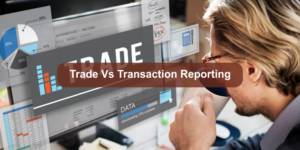
Blog
Adverse Selection
Adverse Selection
Adverse selection, also called anti-selection, is a market mechanism in which buyers or sellers of a good or service are able to use the confidential information about the risk variables in the transaction for the purpose of maximizing their own outcomes at the cost of other parties.
Get complete FRM Online Course by experts Click Here
Adverse selection is a situation where either sellers or buyers have more information than the other regarding an aspect of product quality. Generally, sellers have more knowledge than buyers. It occurs when asymmetric information is exploited. While asymmetries in information tend to benefit the buyer in markets like the insurance industry, in markets such as the automotive industry and real estate the seller typically has better information than the buyer.
How does Adverse Selection work?
Adverse selection occurs when one party holds important information that the other party is not aware of. This asymmetry of information then leads to making less profitable businesses or dealing in riskier markets. It is common in the insurance industry as people who work in high-risk jobs having dangerous lifestyles take up life insurance to protect themselves from future risks.
Adverse selection in Insurance:
As mentioned above, adverse selection is a common scenario in the insurance sector where people with dangerous lifestyles take an insurance cover. To reduce their exposures to these high-risk claims, insurance companies limit the coverage provided to these individuals. They may also raise their premiums according to the risk level in order to compensate for covering these people. For example, a car insurance company may charge higher premiums to race cars, a health insurance company may charge higher premiums to a diabetic person, etc
Adverse selection in Financial Markets:
In a financial market, the seller may have more information about the product than the buyer which puts the buyer at a disadvantage. For example, if a manager of a company knows the share price is overvalued, he is more likely to issue shares and make a profit as the buyers are unaware of the overvaluation.
Get complete CFA Online Course by experts Click Here
Solutions to Adverse Selection:
In the case of the insurance sector, the company can group high-risk individuals according to the level of risk and charge them premiums accordingly. For example, charging different premiums to groups of people having heart problems, diabetes, obesity, etc. These variables influence an individual’s health and life expectancy and determine the organization’s willingness to pay the claim. Hence, the insurer must decide if an insurance plan is to be issued to a prospective customer and determine the customer’s premium.
In the case of financial markets, information about products must be completely disclosed by the managers so that the investors can take an informed decision on whether they should purchase the security. Likewise, banks should screen applicants for loans to tackle the adverse selection issue. This mechanism enables them to charge different interest rates to different borrowers: the higher the credit score, the lower the interest rate on a loan, for instance.
Author – Abha Shetty
About the author – Abha is a second-year BMS student and FRM level 1 candidate. She is very intrigued by the world of financial markets and hopes to master the art of investing and trading.
Related post:






